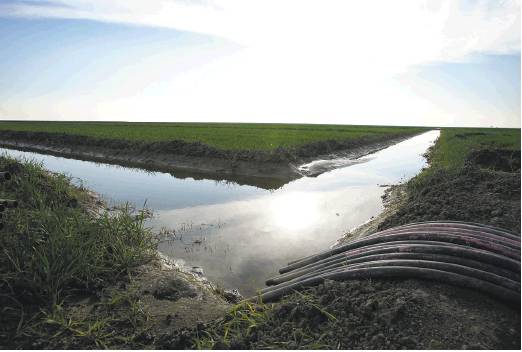OPEN FORUM On the June 5 Primary Election
Gubernatorial candidates need to focus on water
By Lester SnowAbout a year into his second go-round as governor, Jerry Brown was talking about all the challenges facing California. Mostly, these were issues he had raised during his campaign — an enormous budget shortfall, high unemployment, immigration, education and more.
And now, he said, we have a drought.
As it turned out, the drought was one of the most persistent challenges Brown faced during these two terms. He had likely not anticipated a water crisis during his campaign, but not a week went by without his administration wrestling with urgent water issues.
In January, someone new will occupy the governor’s office for the first time since 2010. Considering that three of the past four governors have faced both drought and flood emergencies, our next governor must be prepared for these threats.
This time, Californians should insist that all those who aspire to be governor place water issues prominently on their campaign agendas. After all, just two years ago, polls showed that Californians considered water and the drought the most important issue facing their state — above even jobs and the economy.
In 2018, voters should demand that candidates explain their plans to preserve, enhance and protect the water resources upon which the state’s economic future and the quality of life for nearly 40 million people depend.
On that score, the governor’s race is not off to a terribly promising start. Of the six major candidates, only three make even a passing reference to water issues on their websites at this time. But there’s still plenty of time, and no shortage of things to talk about, including:
The effects of climate change require a fundamental re-evaluation of how we manage our water supply. Our state will get hotter and drier overall, while episodic floods will threaten our safety and infrastructure. Rivers and aqueducts are fed by snowmelt, and the snowpack is dramatically diminishing.
One solution is to accelerate projects to maximize regional water resources. Local water agencies are increasingly pursuing such strategies including replenishing groundwater basins, increasing storm-water capture, expanding water recycling and investing in flood protection.
What plans do the candidates for governor have to further expand these approaches?
Water exports from the Sacramento-San Joaquin River Delta are less reliable than ever and the fisheries continue to decline more than 20 years after a celebrated Delta Accord between the state and federal governments.
The state is poised to move forward on the California WaterFix, the delta tunnels project designed to ensure more reliable delivery of water to communities and farms while protecting delta ecosystems. At the same time, the state’s Water Board must ensure the water quality of the Sacramento and San Joaquin river systems.
How do the candidates propose to increase the reliability of water deliveries through the delta while protecting the rivers and fish?
Upward of 1 million Californians do not have access to clean and safe drinking water, mostly caused by contaminated groundwater. Instead, they must purchase drinking water in bottles. In 21st century California, this is shameful.
Nearly everyone agrees that it must be solved, and funding is needed for the sustainable solution.
How would those who would be our next governor solve this crisis?
Water use has slipped back to pre-drought levels even though during the drought Californians conserved water heroically and reduced their water use by almost 25 percent.
In a hotter, drier future, everyone has to make water conservation and efficiency a way of life. Proposed legislation to increase water efficiency standards in cities, towns and on farms is before the Legislature.
What will the next governor do to reduce waste of this precious resource?
The first deadline for adopting local groundwater management plans is in 2020. The Sustainable Groundwater Management Act, a law that for the first time requires local management of groundwater basins to ensure reliable supplies over time, was signed in 2014.
Which candidates will stand firm in enforcing this law?
Whether a winter is wet or dry, climate change will make California’s weather more extreme and water issues will remain a vital concern to California voters. There is plenty to talk about. It’s time for the candidates to start talking.
Lester Snow was the founding director of the Water Education Foundation, where he continues to provide strategic counsel on programs, projects and initiatives. He served as Secretary of the California Natural Resources Agency.
